Comparisons
- PS Audio BHK Signature 250 ($7,499)
- The PS Audio BHK Signature 250 provides more depth, clarity, and finer and rounder outlines (depending on tubes used). There’s a reason why we use it on our larger reference B&W 804D2 rig – they sound truly exceptional. The TToby has a slightly denser and warmer tone but simply doesn’t have enough dynamic drive for these speakers – which wasn’t its intent anyway. The TToby still played loud, composed, and was still a pleasure to listen to.
- PS Audio Sprout100 ($599)
- Another compact/lifestyle product and possibly my favorite integrated under $1,000. Superbly musical and versatile. It has a warmer tone over the TToby but doesn’t have nearly the layering and contouring capabilities. The ~$4,000 price difference gives you something that not only sounds musically pleasing but more “lifelike.” The TToby has more of an analog flow with more delicacy in its articulation. The fact I’m even comparing the two should speak very highly of the Sprout100 – there aren’t many high-value gems in the space, but this is one of them.
- First Watt J2 ($4,000)
- A fantastic sounding amplifier that ticks all the technical boxes. It’s musical but I wasn’t a huge fan of its smokey overtones which I felt affected the timbre of voices and instruments. Although not as fluid, the TToby clears the air and has more convincing textural cues. It just sung more to my soul, especially over longer listening sessions.
- First Watt F7 ($3,000)
- The TToby is clearer and truer. It has a much larger soundstage, more air, incisiveness, and depth. The F7 is thicker, warmer, and masks some of the inner details granted by the DAVE. I like warm, but the F7 is too warm for my tastes. It’s organic and smooth but the TToby has this rawness that just sounds more naturally dense and free-spirited.
- Dayens Menuetto ($1,045)
- A very energetic and addictive amplifier. It’s very quiet, highly resolving, and smooth in its articulation. One of the most well-textured amplifiers I’ve ever heard. At its price point, I would definitely recommend a listen. Compared to the TToby, it was more detailed but didn’t quite have the organic body. The TToby had a more holistically accurate tonality which makes for a more euphoric and lifelike sound. It definitely pairs better with warmer DACs. Review coming soon.
- NuForce STA200 ($1,299)
- I’d take the Menuetto over the STA200, but for its current asking price ($499), this amplifier is an absolute steal. The STA200 is a brilliant amplifier, incredible depth, quiet, and sounds too good for the money. I’ll be honest, it sounds better with this amplifier driving my Omegas directly rather than directly with the Chord DAVE. Surprisingly enough, the STA200 is tonally similar to DAC direct drive, which means it’s very transparent to the source. With the STA200, everything is just more fleshed out, layered, and much fuller. Like the Menuetto, it had the transparency but didn’t quite have the midrange fullness (or tone) to make voices and instruments as convincing. A common tradeoff. Voices and instrumentation on the TToby are immediately more textured, rounded, and properly colored. Bass heft and definition is also significantly better than the STA200. In any case, I’ll be keeping the STA200 around for my budget reviews.
Final Thoughts
I’m surprised the Chord TToby didn’t garner more attention. It is not only smaller and generates less heat, but sounds better than some of these big and hot amplifiers. Albeit at a higher price tag. Although the Chord TToby was meant to be best paired with the TT, I’ve found it to also be a wonderful musical companion with the Chord DAVE, Hugo 2, and Qutest. It’s apparent the TToby was voiced with their own sources but also performed incredibly well with other DACs like the Linnenberg Telemann.
The TToby is a stunning achievement by John Franks and the Chord Electronics team. He obviously wasn’t willing to compromise sound quality for size or design. Most designers won’t consult with other ears when designing products, which baffles me. Mr. Franks, on the other hand, gets the team together for listening tests and takes feedback seriously. I have no doubt this is one of the reasons why the TToby is voiced so beautifully.
The more time I spend with the unobtrusive TToby, the more impressed I am at how natural recordings sound. From jazz to orchestral, to pop, and even rap. You’re able to “hear the lips and lungs behind the microphone.” It’s difficult to believe this is coming from a tiny Class A/B amplifier.
After having gone through over a dozen amplifiers, I’ve always returned to the Chord TToby for the following reasons:
- Small Form Factor – Square-footage and rack space is expensive. The TToby doesn’t just work well for desktop applications, but very attractive for a larger scale 2-channel rig.
- Uncompromising Power – The TToby had the headroom and was able to drive every bookshelf speaker I’ve tested with authority and musicality.
- Heat – In a nearfield setting, heat could be an issue with some amplifiers. At its worse, the TToby is just warm to the touch.
- Class A/B – Many of these Class A amplifiers not only run hot but need time to warm up. With the efficiency of the TToby, I’m able to keep it on for weeks without worrying about heat and power-efficiency.
- Sound – Regardless of its compact form, its sonic performance is thoroughly impressive. While other amplifiers add immense coloration, the TToby keeps the organic purity of the signal.
I haven’t been impressed with many amplifiers when paired with the Chord DAVE. There’s either a dark veil which masks details or an overexcitement in tone. Upon my first listen of the Chord TToby, there was an immediate and undeniable synergy. Musical notes congeal with solidity, gravitas, and texture.
Footprint notwithstanding, the Chord TToby is a serious amplifier that combines both performance and beauty. It doesn’t over-romanticize and keeps a nice balance of clarity and body. There’s a tonal density, dimensionality, jazz, and snap in its presentation. Dynamics are far-reaching and imaging is precise and coherent. As far as tone – a foundation of neutrality with healthy scoops of warmth. It just has a wonderful balance of resolution without affecting timbre accuracy.
Always willing to push the envelope, Chord Electronics has recently released an amplifier with a new topology. John Franks designed the Choral Étude to be the dancing partner for their flagship DAC, the Chord DAVE, designed by Rob Watts. This analog-digital dynamic duo is already a formidable force in the HiFi industry – and it’s only going to get better.
The specs on the Etude look impressive and I hope to hear it soon. Until then, the Chord TToby will be my reference amplifier for future bookshelf reviews.
Although the Chord TToby is not inexpensive, it won’t take you long to realize it performs at the top of its class. Give the Chord TToby a listen, especially if you have a Chord Electronics DAC. It’ll be too alluring to resist.
Purchase: Chord TToby ($4,395)
Keep up to date with Audio Bacon’s adventures on Facebook!

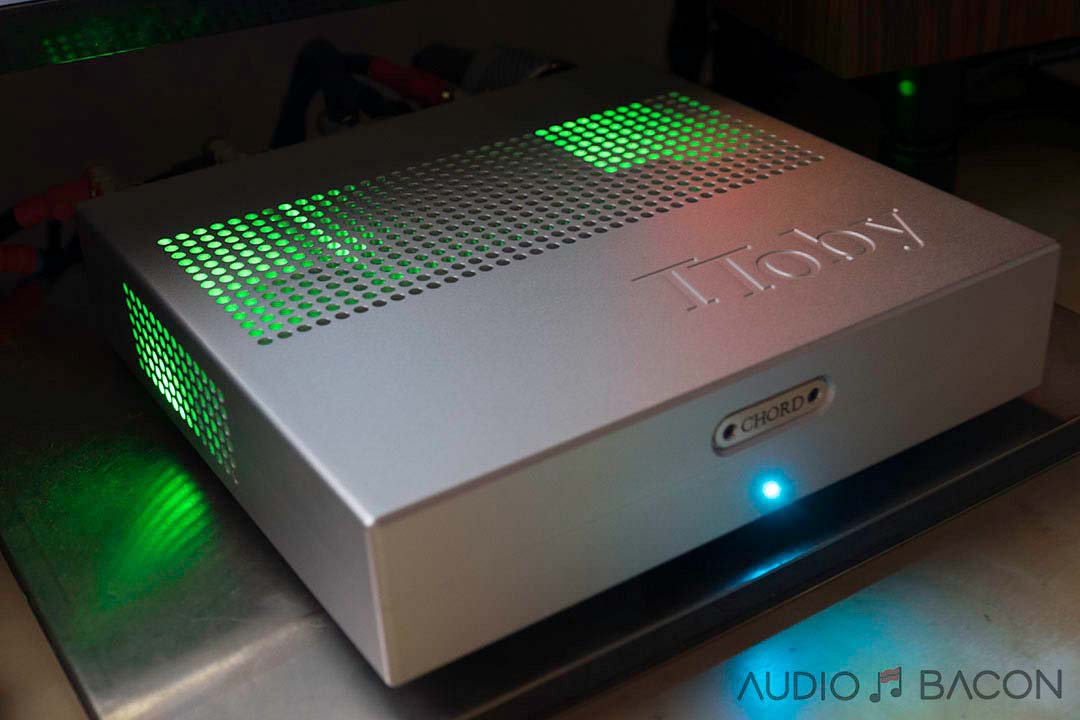
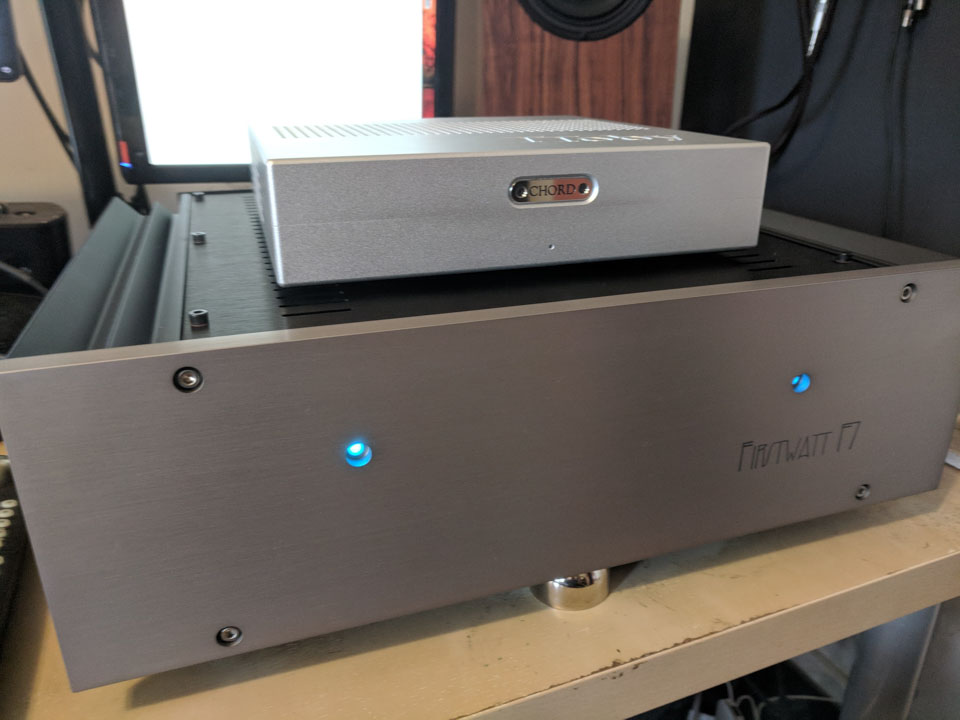
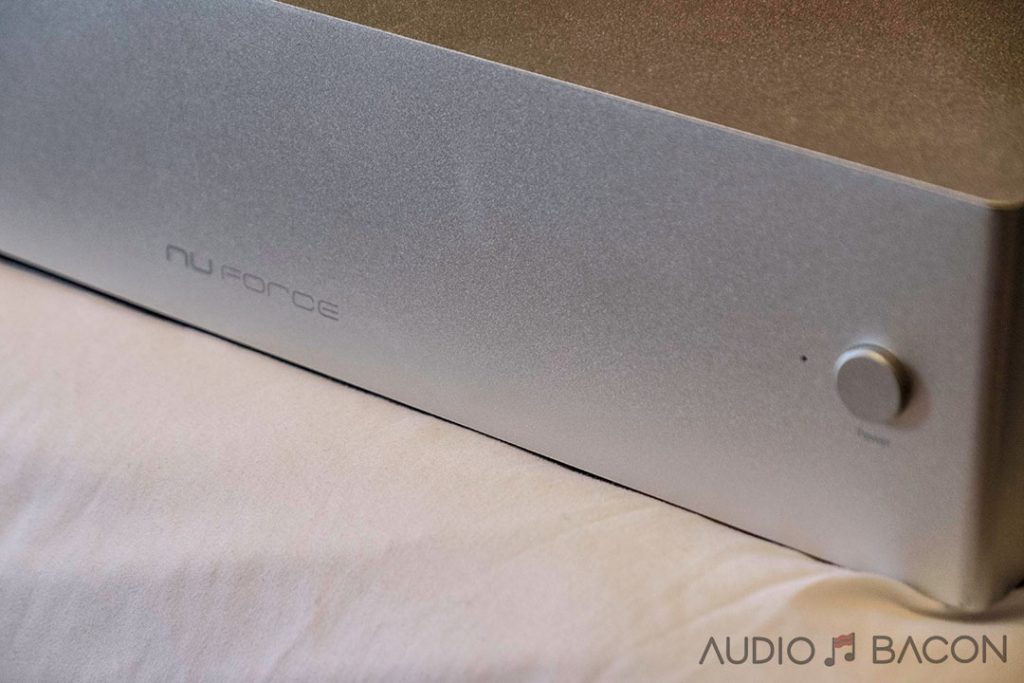
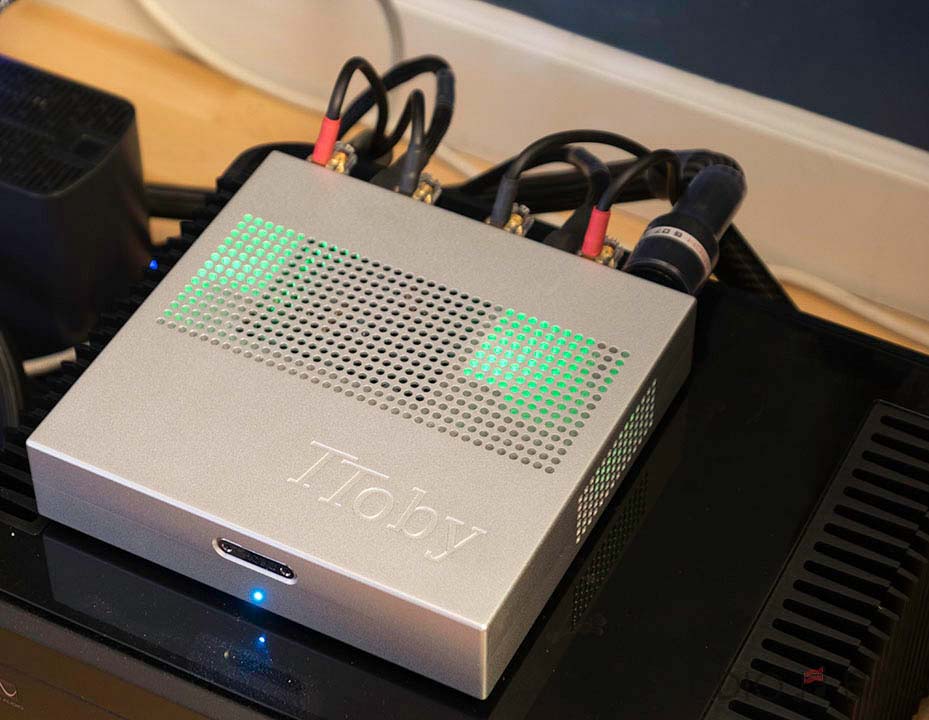
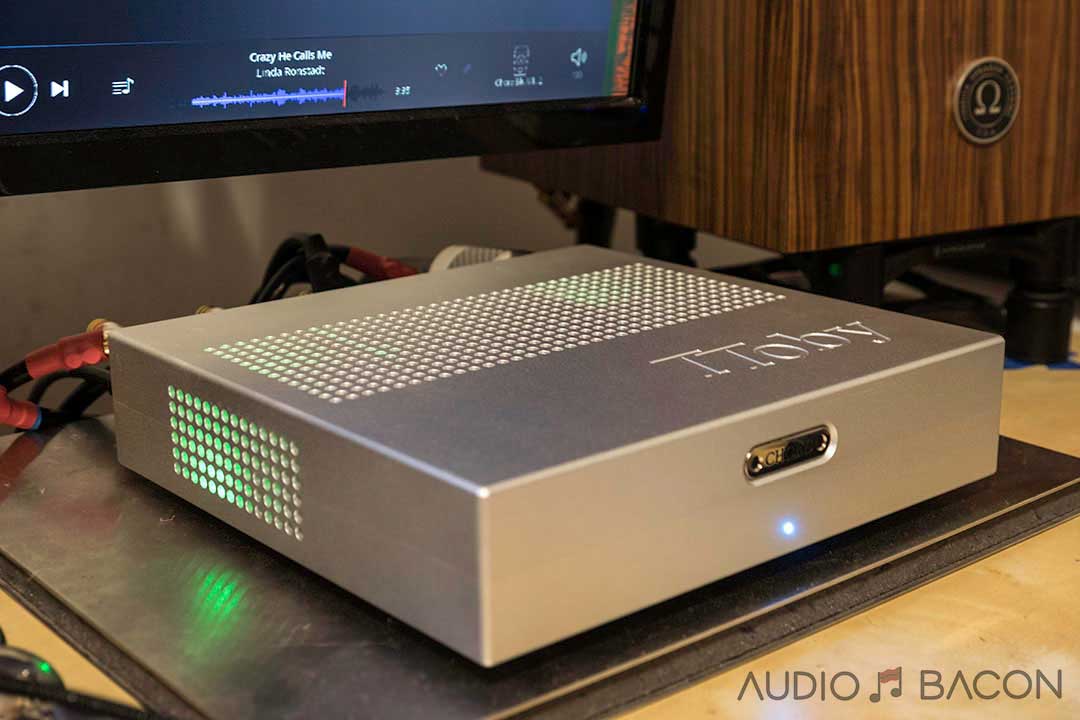
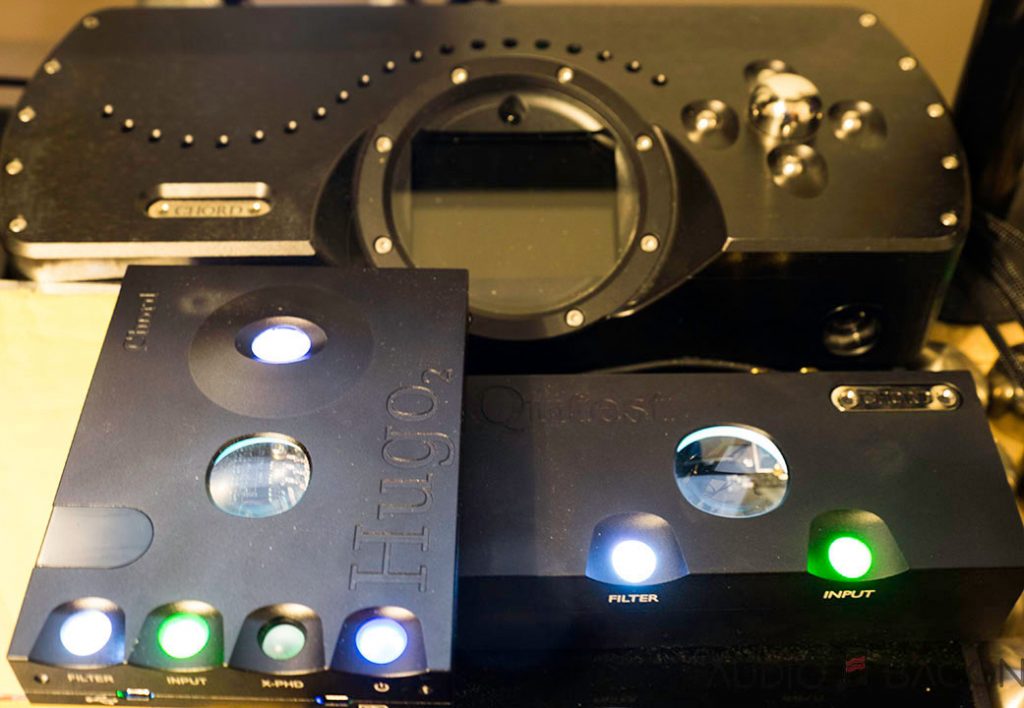
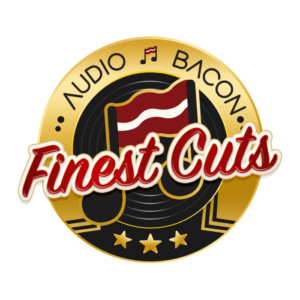


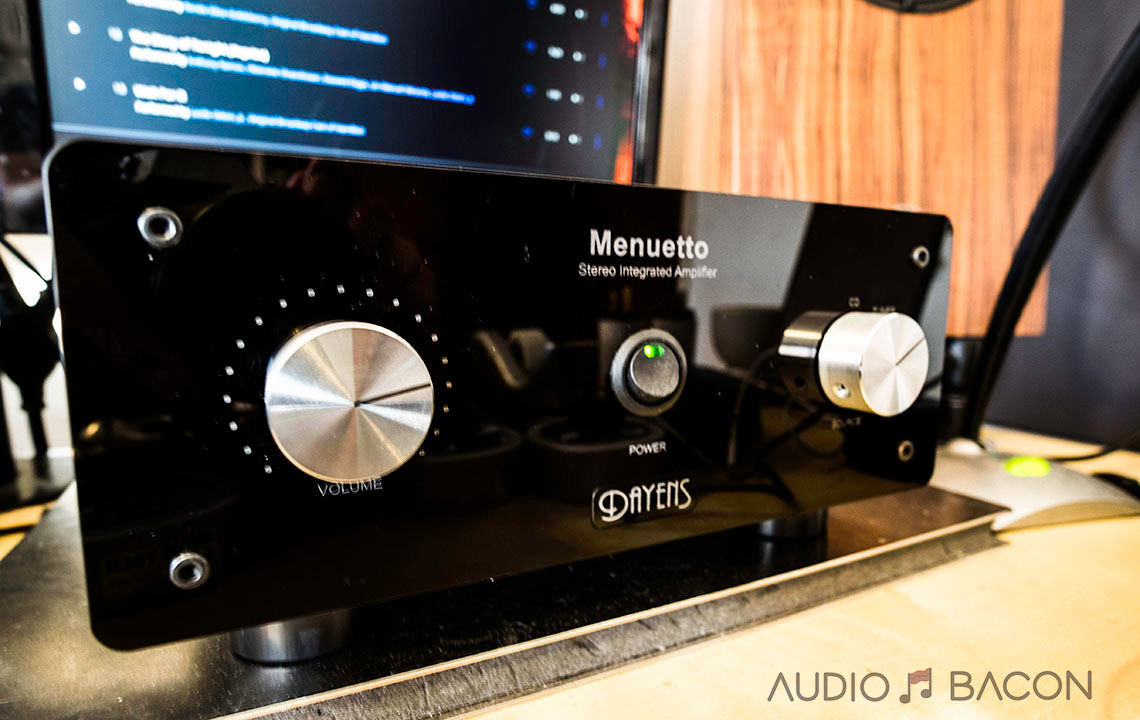
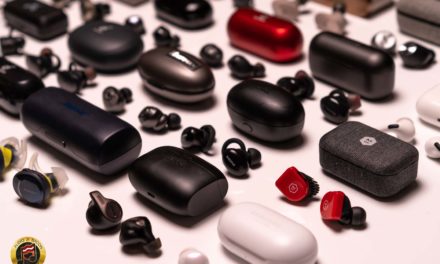
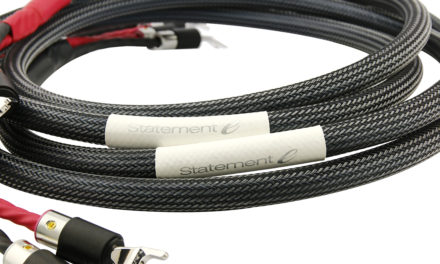
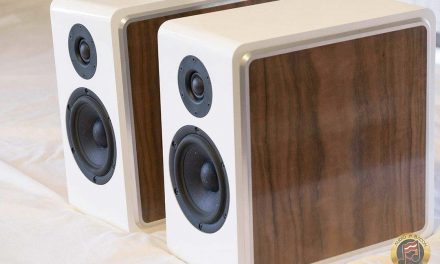

Congeal? Organic? You left out craft.
I think I need another word for thesaurus.
Can you tell me more about that bed mattress the manual is sitting on? Looks like a comfy mattress. What are the effects such mattress materials have on global attenuation?
wont those heavy blinky cables weigh on the back of the unt causing a weird situation?
It might pose a problem if you have the TToby right at the edge.